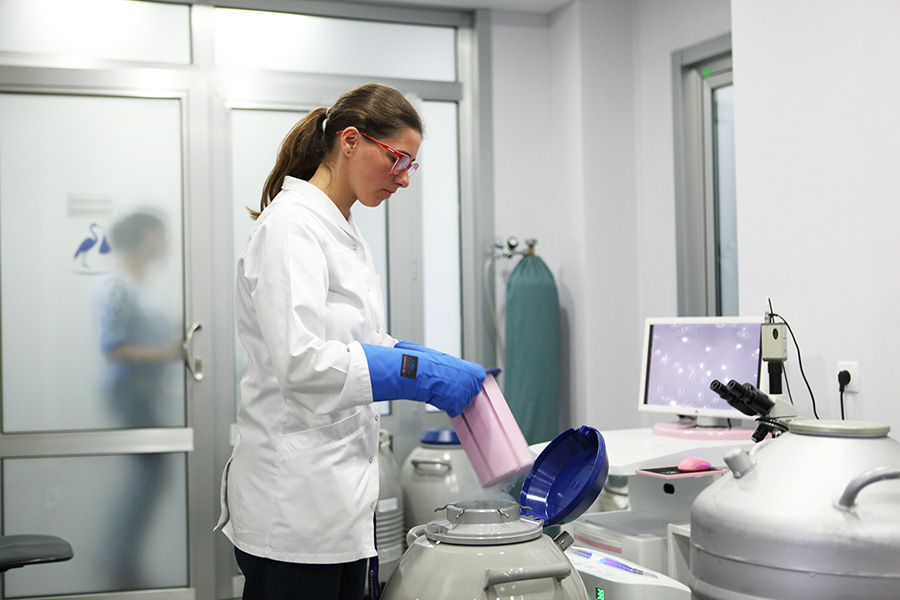While some couples can take the traditional route of meeting, falling in love, and starting a family together by allowing the woman in the relationship to become pregnant, this isn’t always an easy or available route for other couples. Some women have been medically evaluated to be at risk if they undertake pregnancy, either harming themselves, the baby, or both if they take a chance. Women with a heart condition could endanger their own lives if they risk a pregnancy, while a woman diagnosed with aids can safely bear a child, but runs a strong chance of transmitting that disease to the child.
In other instances, people may have physical barriers to traditional childbirth. A same-sex male couple, for example, can’t have a natural childbirth since, with both partners being male, there is no uterus present for either partner to become pregnant and nurture an embryo. The same is also true if a woman, for medical reasons, has had her uterus surgically removed.
In such cases, surrogacy, where another medically approved woman agrees to allow her uterus to be used for pregnancy, is the solution. It allows a hopeful family to have a newborn of their own, often with the same genetic traits of both parents if gestational surrogacy is medically feasible.
However, in some cases, the choice to undertake surrogate motherhood may take place in an entirely different country from where the hopeful family lives, such as Georgia. But why would a couple choose to use surrogacy agencies in Georgia, rather than their own country?
Georgia’s Legal Stance
One of the most important reasons for people considering using surrogacy agencies in Georgia is because of the legal status of many different types of surrogacy. Gestational, compensated surrogacies are protected under Georgian law. This means that for couples who would like more choice, and the ability to make that choice based on a compensated surrogacy they are free to do so.
Compensated surrogacy means that a surrogate mother enters into a business transaction with a hopeful family. In other words, she is being paid for the very significant contribution she is making to a hopeful family of allowing her uterus to be used for the pregnancy process. Because compensated surrogacies can be lucrative, in addition to being beneficial to the hopeful family, this often means that the availability of quality, medically approved candidates, is much larger in regions where compensated surrogacy is legal.
Compassionate or altruistic surrogacy, on the other hand, has the opposite concept. As you might imagine from the name, compassionate or altruistic surrogacy means that a woman is choosing to make a very large sacrifice of her time and her physical health, with no additional recognition after the fact. Of course, her living expenses and her medical costs will be paid for by a hopeful family—or they should be, in the interest of fairness and ethics—but she receives no additional financial profit or compensation for her effort. This usually means that available candidates are in much shorter supply since this requires an enormous act of charity and sacrifice with no tangible reward.
Protecting Parents
Another important aspect of surrogacy agencies in Georgia is their adherence to Georgian laws that are designed to protect the hopeful parents. Georgian law states that once a legal contract has been established between hopeful parents and a surrogate mother, the child born of that legal agreement has 100% legal custody from the hopeful parents, not the surrogate mother.
This is in stark contrast to some counties like France or Germany, or even some regions of different countries, such as the province of Quebec in Canada. In these areas, the rights of the surrogate mother are equivalent to the rights of a biological parent, and hopeful families have no legal custody of a child, while the birth mother retains legal control.
There is, in Georgia, however, one particular legal restriction. Surrogacy agencies in Georgia will not take one hopeful same-sex parents. This is because they cannot guarantee the legal custody of children intended for a same-sex couple, as Georgian law does not recognize the legal rights to children for same-sex couples. So while traditional male-female couples can get access to the full range of services for surrogacy agencies in Georgia, same-sex couples should look to other countries.
Medical Quality & Legal Experience
Another reason that couples might look to surrogacy agencies in Georgia is the overall quality of the medical services available in the country, paired with the legal experience the agencies have in ensuring a smooth process for couples.
Georgia is capable of providing high-quality, first-world medical service for both the baby and the surrogate mother. However, once the baby is born, depending on the country of origin of the couple, there may be legal processes involved to ensure the newborn receives citizenship upon return to the desired country. There are many surrogacy agencies in Georgia that have all the services under one roof to handle the process of finding a surrogate mother to birth and ensuring proper legal procedure is observed.


